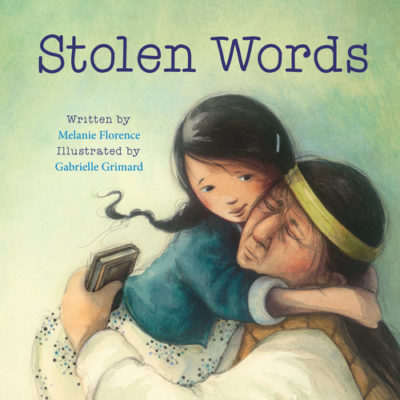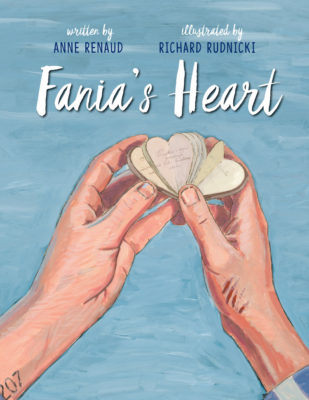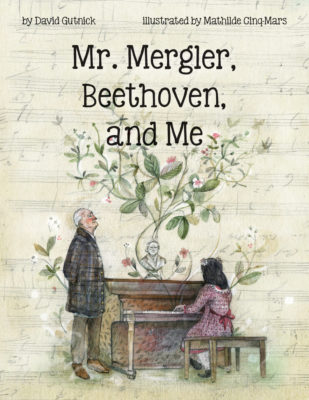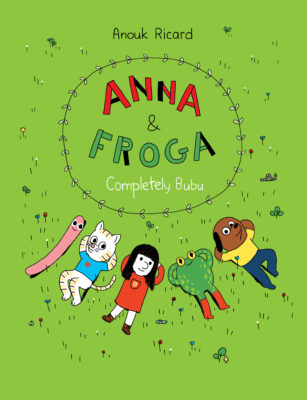Melanie Florence’s Stolen Words is a modern story, a hopeful exploration of one way the Cree people may begin to reclaim their language and culture. The stolen words of the title refer to the practice in residential schools of forcing all First Nations children, including the Cree, to speak only the white person’s languages. “They took our words, locked them away; punished us until we forgot them, until we sounded like them,” Melanie Florence writes.

Stolen Words
Melanie Florence
Illustrated by Gabrielle Grimard
Second Story Press
$17.95
cloth
24pp
9781772600377
Like Stolen Words, Jan Bourdeau Waboose’s The Spirit Trackers is a modern story that has clear connections to First Nations culture and history. In fact, The Spirit Trackers is two stories in one book. One story is the tale of the northern Windigo: The Wandering Spirit of the Winter. The second story is about what happens when two young boys visit their uncle and decide they are ready to follow the family tradition and become trackers. The character of the uncle connects the two stories, one ancient and one new.
The uncle’s terrifying description of the Windigo both horrifies the boys and galvanizes them into action: “It has a heart of ice and its teeth are like steel. It will eat anything in its way.” Despite the strange sounds they hear and the unsettling shadows they see during a sleepless winter night, the boys put on snowshoes and dare to venture out in search of the Windigo. They find more than they bargained for, and in the process learn about themselves and their ancestors.
The Spirit Trackers
Jan Bourdeau Waboose
Illustrated by François Thisdale
Fifth House Publishers
$18.95
cloth
32pp
9781927083116
The moral of the Anishinaabe tale the uncle tells about the Windigo remains relevant to all of us who occupy this wintery province. Respect and honour The Wandering Spirit of the Winter, because it is more powerful than mere humans will ever be.
In 2011, inspired by something he saw during a visit to the Montreal Holocaust Museum, filmmaker Carl LeBlanc released a critically acclaimed documentary called The Heart of Auschwitz. What he saw was a daisy-sized, heart-shaped card that unfolded like an origami flower to reveal the messages written inside. The cover was made of purple fabric and embroidered with an orange F on the cover. The F stood for Fania, who was the twenty-year-old recipient of the gift. The nineteen messages inside were written by Fania’s friends, all of who worked beside her as slave labourers in the Weichsel-Union- Metallwerke and, like her, were prisoners in one of the Nazi’s most infamous death camps.

Fania’s Heart
Anne Renaud
Illustrated by Richard Rudnicki
Second Story Press
$18.95
cloth
32pp
9781772600575
Anne Renaud’s Fania’s Heart tells the story of the heart-shaped card from Fania’s perspective. The story is an explanation to Fania’s young daughter, who finds the card in her mother’s drawer and asks to hear the story of where it came from. As Fania explains, the card is important both on a personal level and as a symbol of the unbelievable power of friendship, loyalty, and courage. Given the content of the story, which goes into detail about the conditions at Auschwitz, and the amount of text on each page, Fania’s Heart is appropriate for older kids. The illustrations are reminiscent of drawings from the 1950s, intended perhaps to invoke the era when Fania’s daughter originally found the card. And for children and adults who are interested in this amazing story, you can watch Carl LeBlanc’s wonderful film or head to the Montreal Holocaust Museum and see this inspiring object for yourselves.

Mr. Mergler, Beethoven, And Me
David Gutnick
Illustrated by Mathilde Cinq-Mars
Second Story Press
$18.95
cloth
32pp
9781772600599
Cinq-Mars’s illustrations, in gentle shades of green, gold, and pink, do a beautiful job of weaving musical symbols and luxuriant foliage together on every page. The student’s playing produces a verdant entangling of vines with green leaves and bursting petals laid over a sheet of faded musical notation paper. The girl zooms home when she finds out that Mr. Mergler will teach her, her bicycle wheels following the curving lines of a musical staff – she leaves a trail of notes that stretch behind her all the way back to her new teacher. This is a sweet story about the transformative power of music. Readers who are interested can also check out the film version of this true story on the National Film Board website under the title Mr. Mergler’s Gift.

Anna and Froga
Completely Bubu
Anouk Ricard
Translated by Helge Dascher
Drawn & Quarterly
$21.95
paper
208pp
9781770462922






0 Comments